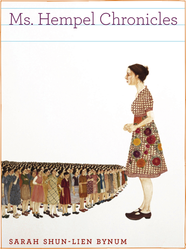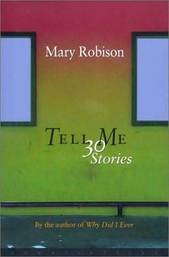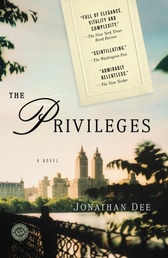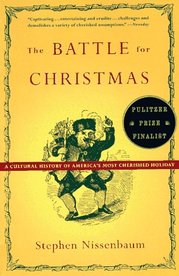|
My year-end literary tally is never as lengthy as I'd want it to be, nor as varied. Do I really read so little non-fiction? (Yes, my mate tells me. It's a disgrace!) But all regrets aside, there were some great highs this year, mostly in the land of short stories, where I often found myself traipsing, foolish maid of letters that I am.  I read J.D. Salinger's exquisite, child-centered Nine Stories for the first time in 2010 (shame on me) as well as the far less famous (shame on you) but no less exquisite Ms. Hempel Chronicles, Sarah Shun-lien Bynum's story cycle about a young and achingly self-aware middle school teacher. Beatrice Hempel's kids are as precocious as Salinger's, but Ms. Hempel is the true gem. Feeling the loss of her own youthful potential, a loss she curiously accepts rather than resists, Ms. Hempel/Beatrice focuses earnestly on the potential of her students in whose lives she has invested her own. Both books I know I will read again. These are characters who will grow with me -- Esme and Beatrice both wise beyond their youth.  Many other reads will endure as well. Jim Shepard's Like You'd Understand, Anyway, lived up to everyone's hype, with particularly awesome tales about high school football ("Trample the Dead, Hurdle the Weak" -- what a title!) and star-crossed Soviet cosmonauts ("Eros 7")... Mary Robison's heroines in Tell Me: 30 Stories, which I read over several months to make it last longer, may be elusive, but they still feel like women I know. Or, as one divorcing mom sums up, "I would sleep on my stomach now, without a pillow, and with no sustained thoughts. I wanted what I wanted. Before bed, I had read stories with I-narrators who could’ve been me." Yes!... Elizabeth Strout's Olive Kitteridge (another great book of connected stories about a teacher) bravely places a strident, unattractive woman at its center, with great success... Danielle Evans's assured debut collection Before Your Suffocate Your Own Fool Self doesn't just have a title that's fun to say, it also has plenty to say about race and being a girl... And Belle Boggs totally had me with the first tale in Mattaponi Queen, a four-pager about being in school on the first day of hunting season that took me back to old Virginia. From my stack of literary journals, two stories in particular stood out. In A Public Space issue 10, I was completely taken with "The Woman Who Lived in the House," Salvatore Scibona's droll yet harrowing tale of heartache and dog rearing in Iceland (not for the faint of heart!). More wonderful wildness appeared in the Summer 2010 issue of American Short Fiction with Lucy Corin's "Madmen," a transporting vision not of Madison Avenue in the 1960s but of a world in which coming-of-age means adopting a lunatic for a pet. (On second thought...)  Of course there were novels, too, many about the sorry state of our country. Jonathan Franzen's ambitious social-realist tome Freedom, which everyone read ravenously in spite of how rotten it made us feel, makes a pretty clever case for birth control. Not only is the world overpopulated, but the people in it are awful! (And having kids only seems to make them worse.)... My personal hobbyhorse, though, is Jonathan Dee's The Privileges, which takes us inside the conscience of a rising Wall Street family: "It was unsettling to think of money in terms other than those of growth, of how it might be used to make more money. Something about it smelled of death to him, but he didn't know why." Unsettling indeed. Dee's genius is his ability to censure his characters even as he develops our sympathies for them. We come to know them intimately and complicatedly; we see how much they love one another. And yet -- what assholes! What a moral wreck our society has become... Though perhaps not as wrecked as Italy under Mussolini. On the flight back from my Italian vacation this summer, I devoured Natalia Ginzburg's intensely autobiographical novel Family Sayings, an elegy for her parents, siblings and friends whose lives were so often caught up in political upheaval. I've never quite encountered a book like this before, deeply moving in its treatment of oppression and resistance, yet matter-of-fact about the way a certain person dressed, the way another person ate, and above all, the things they all used to say.  From the non-fiction -- yes, there was some -- I have to go back a full year, to my first title of 2010. On a certain historian's recommendation, I read Stephen Nissenbaum's The Battle for Christmas to salve my Christmas hangover. And salve it did. Turns out the modern Christmas is as much an effort to keep drunk mummers off the streets as it is a celebration of that holy manger moment. Ah, Philadelphia, I thought, as I read it under a blanket on my couch. Way to keep the old ways alive!
4 Comments
Lovely roundup. Ah Philadelphia indeed.
Reply
Yes, you should.
Reply
Leave a Reply. |
Aboutauthor of The Violet Hour, reader, prodigious eater of ice cream Archives
June 2014
Categories
All
|
 RSS Feed
RSS Feed